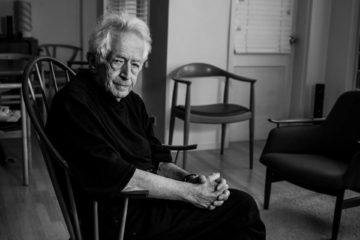Jordi Graupera in The New Yorker:
 This past spring, the philosopher Richard J. Bernstein taught his final two classes at the New School for Social Research, in New York, where he had been a professor since 1989. One was a course on American pragmatism, the tradition to which his own work belongs. The other was a seminar on Hannah Arendt, who, late in her life, was Bernstein’s friend. Years ago, when I got my Ph.D., I was Bernstein’s student. I still am, in a way. And so I asked him if I could audit the class on Arendt and write about it. He said that he didn’t like passive auditors—I would have to participate fully. That requirement struck me as a good description of what Bernstein had done all his life.
This past spring, the philosopher Richard J. Bernstein taught his final two classes at the New School for Social Research, in New York, where he had been a professor since 1989. One was a course on American pragmatism, the tradition to which his own work belongs. The other was a seminar on Hannah Arendt, who, late in her life, was Bernstein’s friend. Years ago, when I got my Ph.D., I was Bernstein’s student. I still am, in a way. And so I asked him if I could audit the class on Arendt and write about it. He said that he didn’t like passive auditors—I would have to participate fully. That requirement struck me as a good description of what Bernstein had done all his life.
He was already in his seventies when I first met him, in 2008, but he still appeared more energetic than most of his students. You’d hear him coming down the hall, engaged in animated conversation, and then he’d stroll confidently and generously into the classroom, a small man in a black turtleneck, his sleeves rolled up, his wavy white hair swept gently back. He had a distinctively raspy voice that was somehow always half ironic and yet deeply sincere, and which sounded more streetwise than the other professors. Even a foreigner like me, from Barcelona, could hear the Brooklyn in it.
More here.
